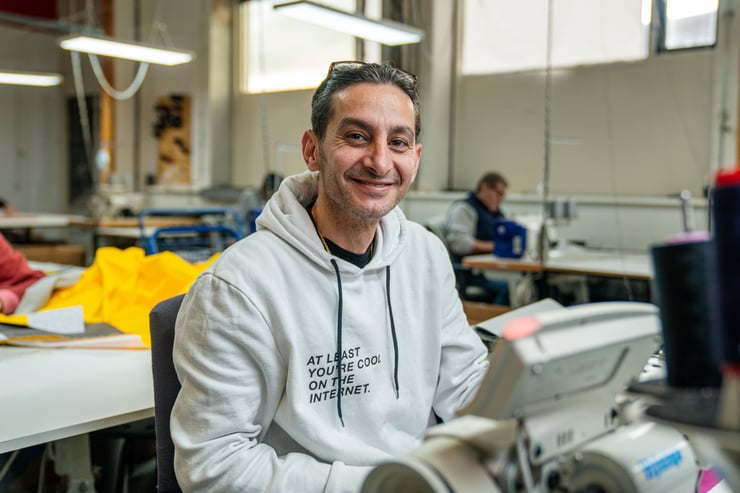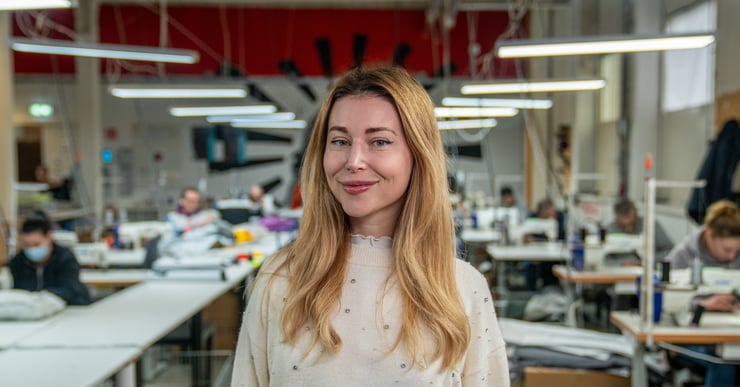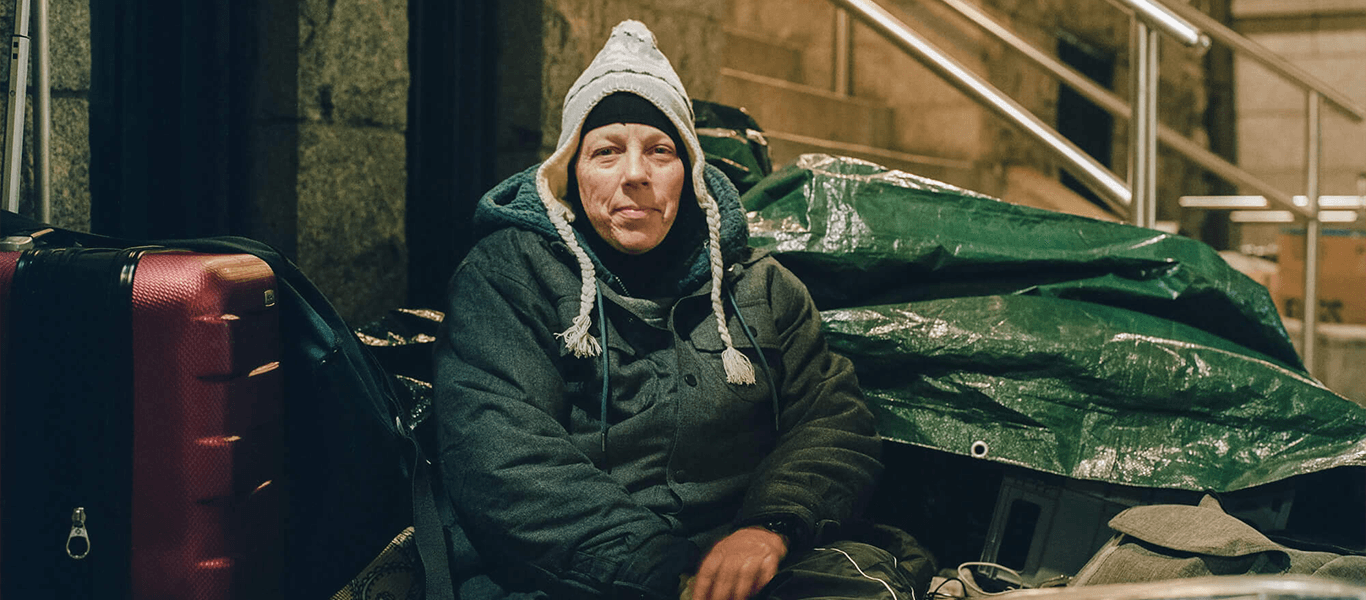Luca, a 23-year-old media design student at Mediacollege Amsterdam, has a story more poignant than most. He has no fixed place, has been wandering from couch to couch for years, and must go through life without the stability of a home. His story outlines not only the raw existence of a young person who is homeless but also the emotional toll of years in a precarious situation.
Through the eyes of a homeless student in Amsterdam
Luca, a 23-year-old media design student at Mediacollege Amsterdam, has a story more poignant than most. He has no fixed place, has been wandering from couch to couch for years, and must make his way through life without the stability of a home. His story outlines not only the raw existence of a young person who is homeless, but also the emotional toll of years in a precarious situation.
Every time I thought I had found something of stability, I had to leave again.
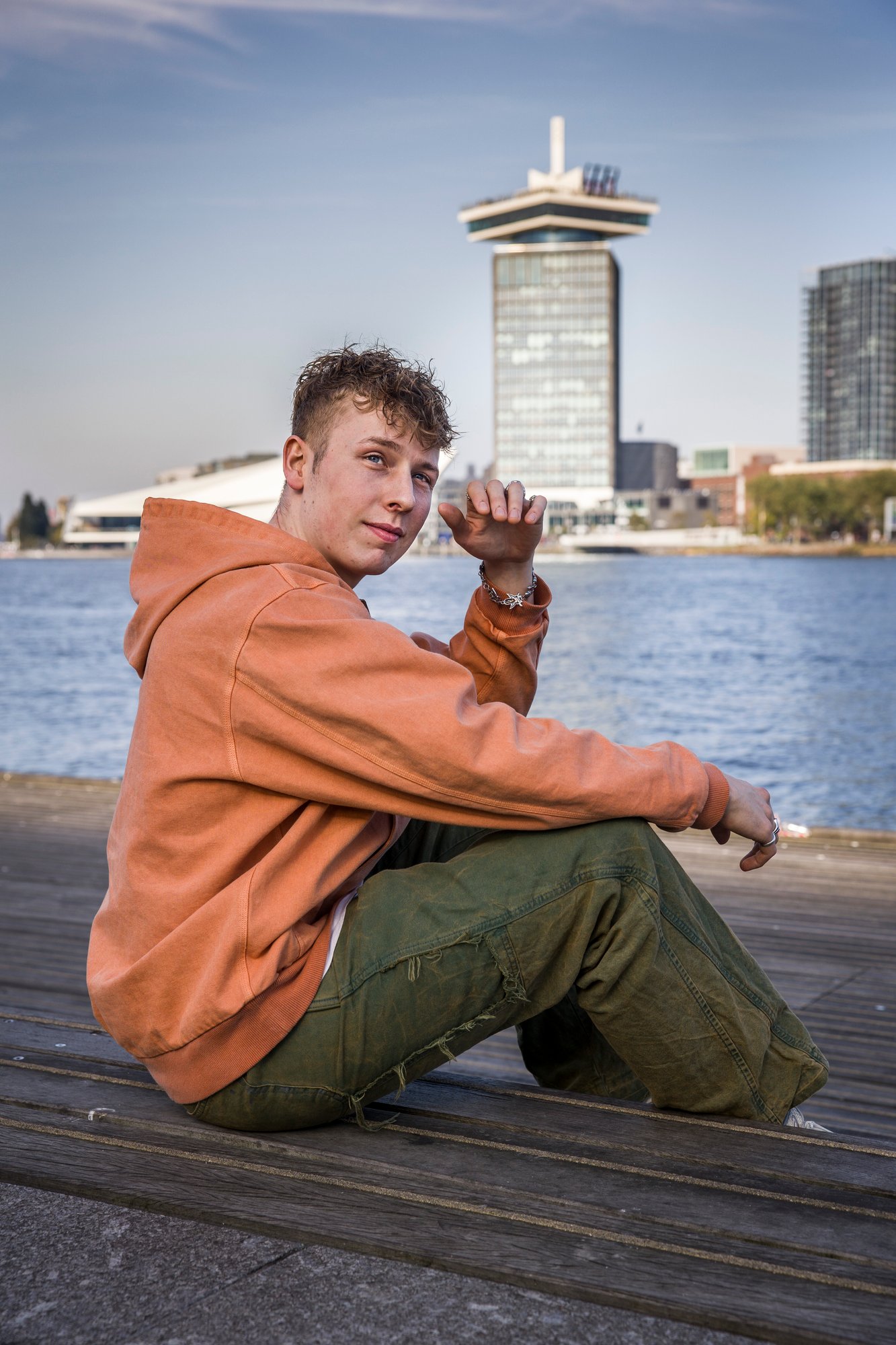
The beginning of a wandering life
When Luca became homeless three years ago, the situation still seemed temporary. He slept on friends' couches, sometimes for a night, sometimes for weeks. But a permanent place was not forthcoming. “I could stay with a friend for a few months, then with someone else again for a short time,” he says. This became his new reality: without security, without a place that was truly his. Eventually Luca found a room he could rent temporarily. He moved several times, but a true home base was not forthcoming. “Every time I thought I had found something of stability, I had to leave again,” he says. “The constant moving from place to place makes it mentally tough. You feel dependent, broken.”
A tough childhood and addiction
Luca's predicament did not just happen. Even in his childhood there were problems at home: his mother struggled with alcoholism and his father had his own problems as well. “My parents were always fighting. I often felt alone and sad,” he says. As he grew older, he became involved in friend groups where drugs played a prominent role. “It became a kind of escape,” he says. “Parties, drugs, attention - it gave me an escape from everyday reality.” Yet that escape did not bring relief, but only worsened the situation. Luca's life became increasingly unbalanced, and his depression worsened. He temporarily quit his studies because of the problems at home and worked night shifts to support himself. “I was working just so I could buy drugs,” he says. “It became a vicious cycle I couldn't get out of.”
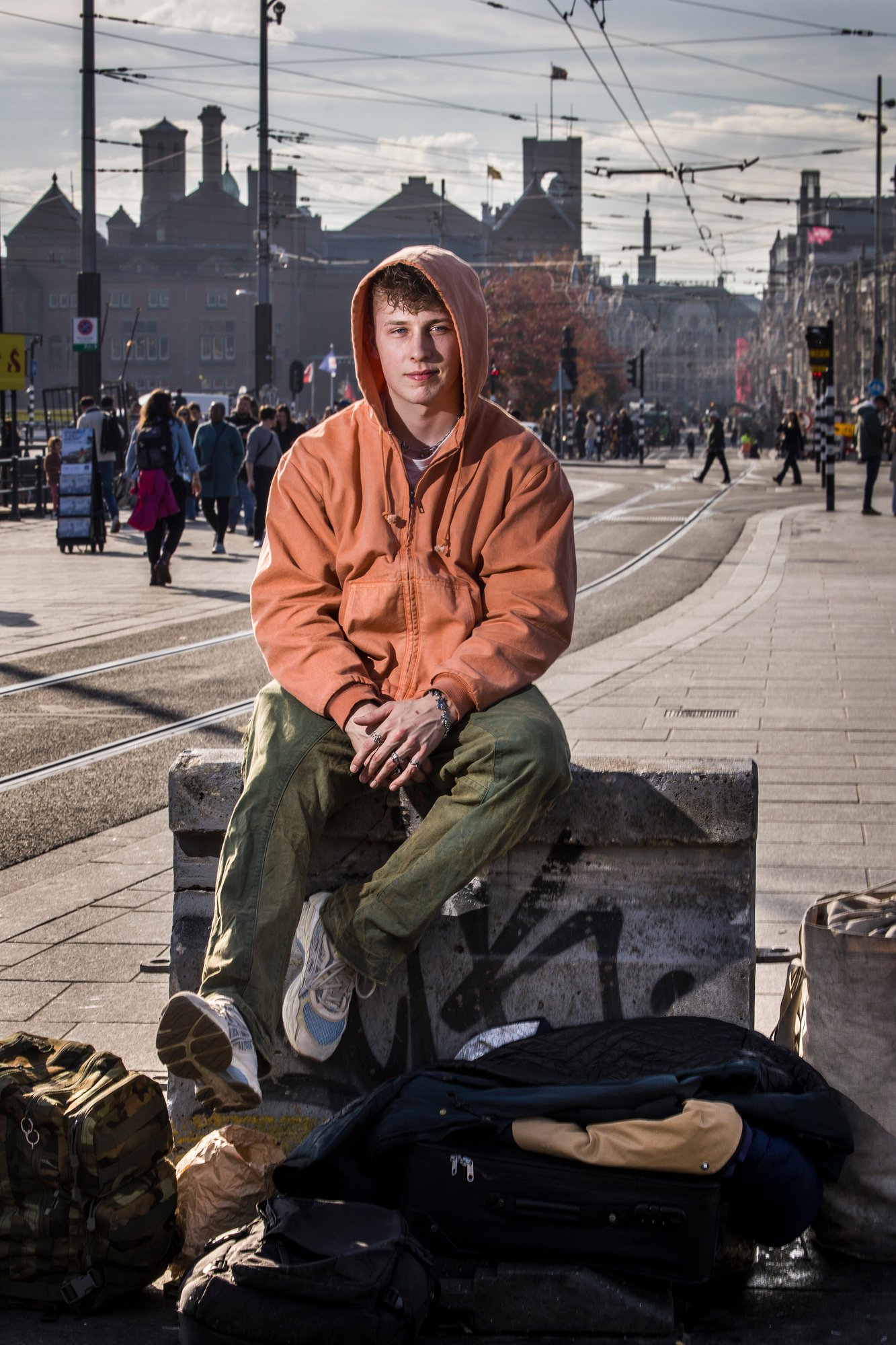
Looking for help in an inaccessible healthcare system
Luca made several attempts to seek help, but was often disappointed by the system. “I went to rehab, but that didn't really help,” he says. When he finally went to crisis services, he was prescribed medication, but without proper counseling. “I was referred to group sessions, when I really needed individual help. I didn't feel heard.” Red tape and financial pressures exacerbated his situation. A high health insurance co-payment left him in debt. Feelings of helplessness and frustration grew. “The Dutch healthcare system is absurd,” he says. “How can you saddle someone in my situation with thousands of euros in costs for a few consultations?”
Fighting for a future
Despite the setbacks, Luca has decided to persevere. With support from his girlfriend and training as a media designer, he slowly sees perspective again. He works at a government project in the Bijlmer and was able to arrange a temporary address with his girlfriend's parents, although he still has to hide from authorities because of the strict housing requirements in Amsterdam. The drive to make something of his life stems from a deep desire to turn the negative into something constructive. “I work and study because I want to achieve something positive. I want a new direction for myself,” he says. But he remains realistic: the road to recovery is not easy, especially without financial and emotional support from family or agencies.
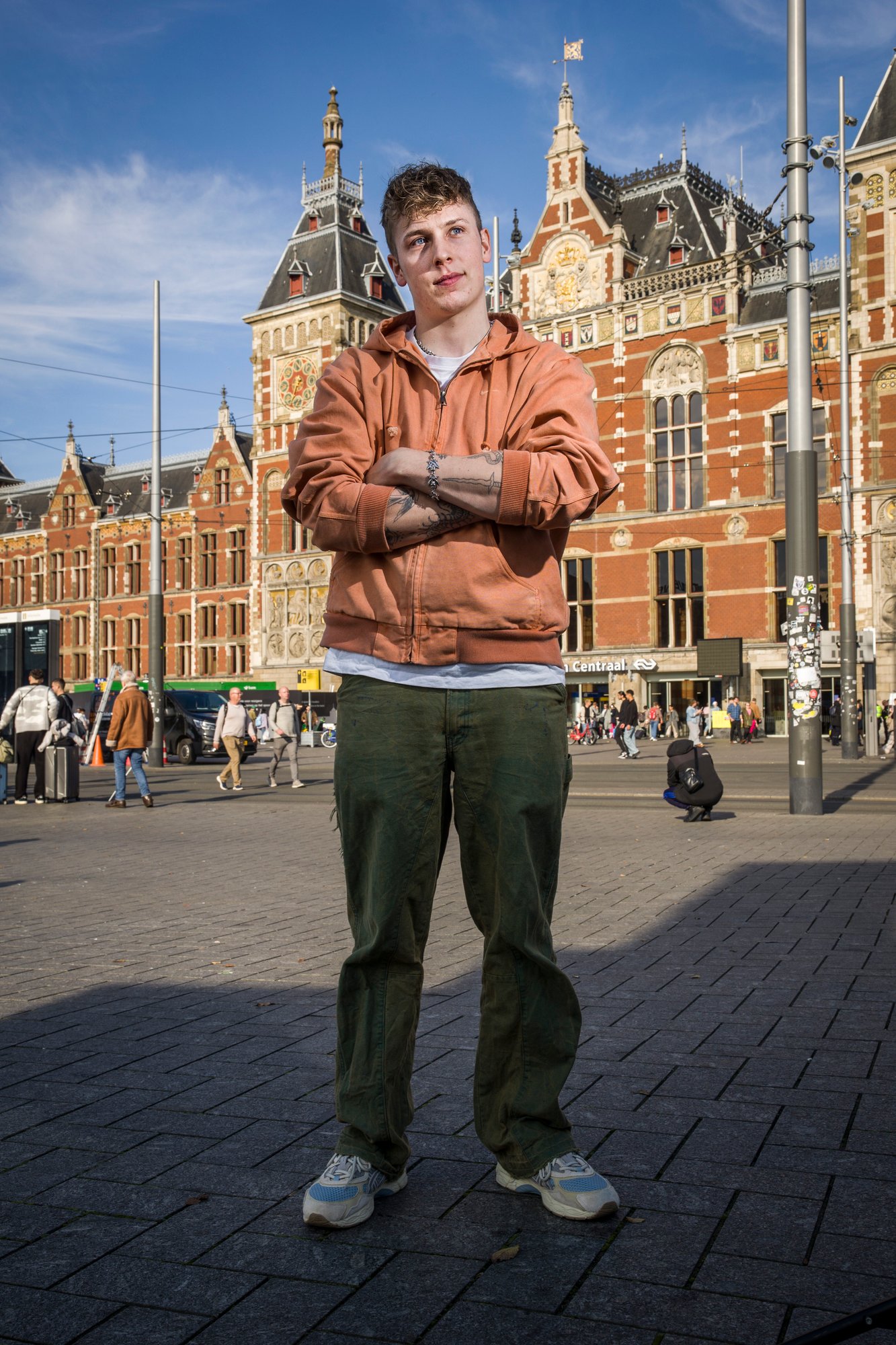
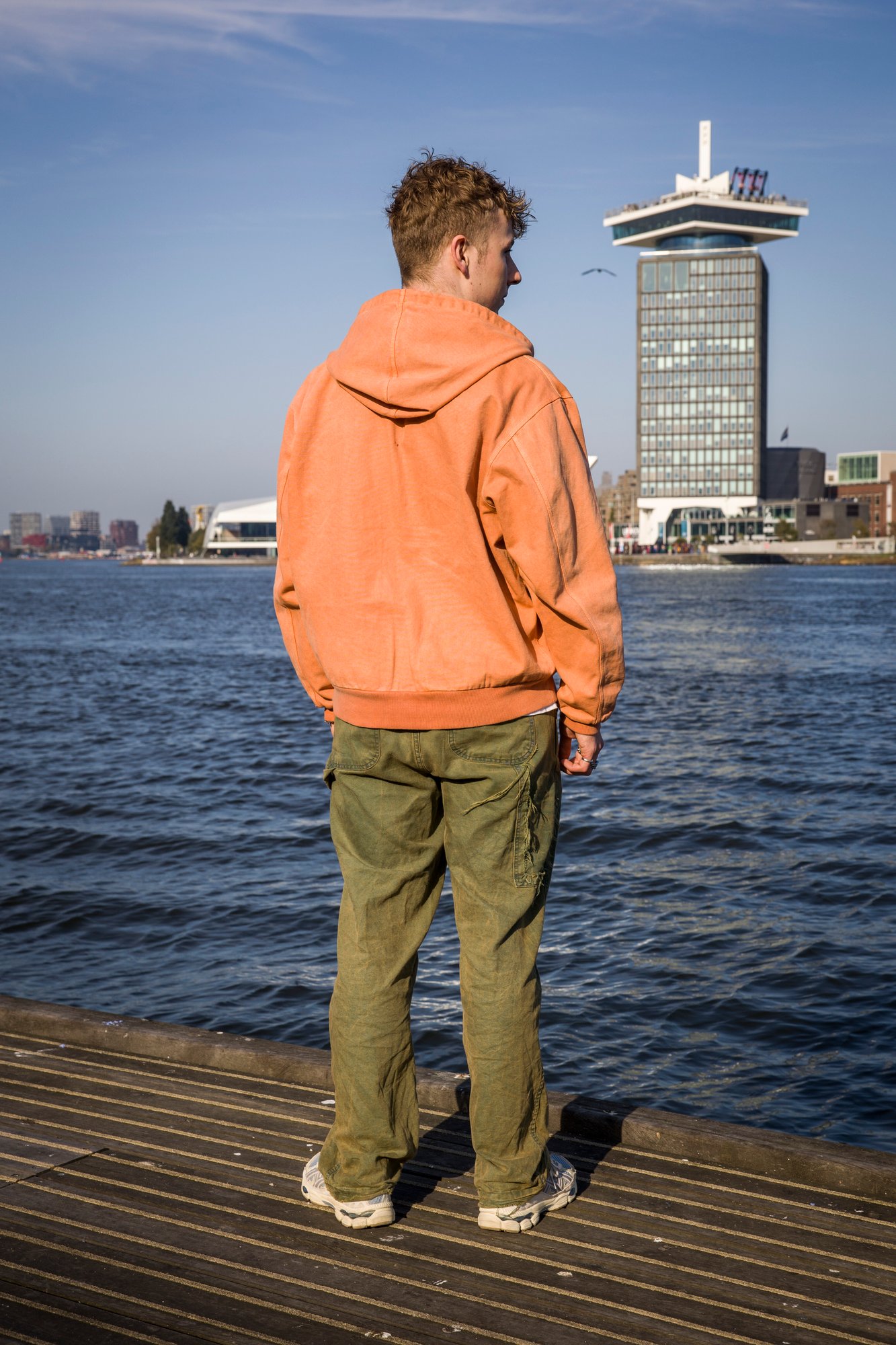
A message for society
Luca's story exposes the pain points of society. He sees how support is often lacking and how bureaucracy exacerbates the situation for people like him. “Many people have no idea how much they have to be grateful for,” he says. “The value of a home, of security, that's something a lot of people never think about. For people like me, with no stable foundation, that's everything.” His message to society is simple: be aware of the value of the base you have and show compassion for those who lack that stability. And to the government, he has an urgent request: provide better support and quicker help for young people in vulnerable situations. Luca's story is a powerful reminder of human resilience. Despite everything, he keeps going. He hopes that others who find themselves in the same hopeless situation can still find the perseverance. Because as he himself says, “Sometimes there is something beautiful around the corner, you just have to keep going to find it.”














